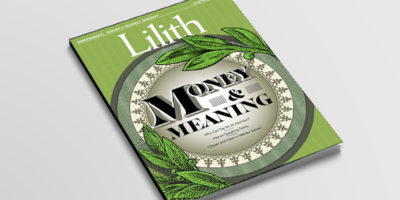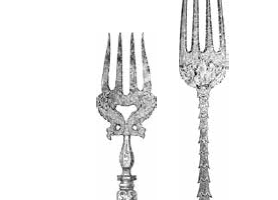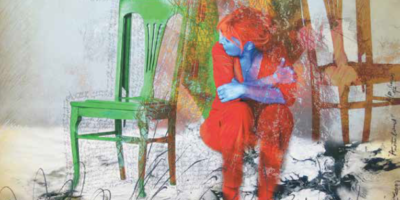Lilith Feature
“Not On Speaking Terms.” Estrangement Inside Jewish Families
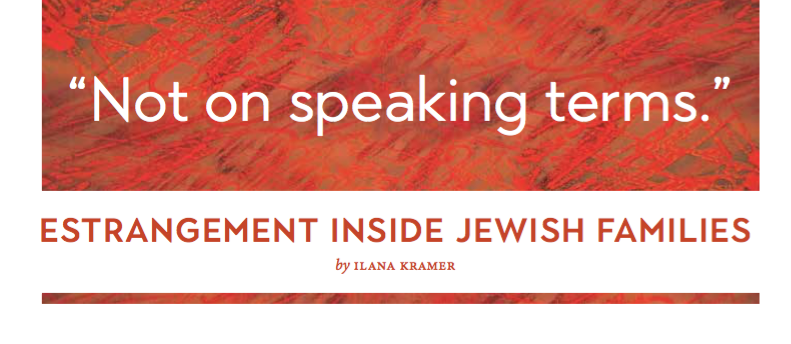
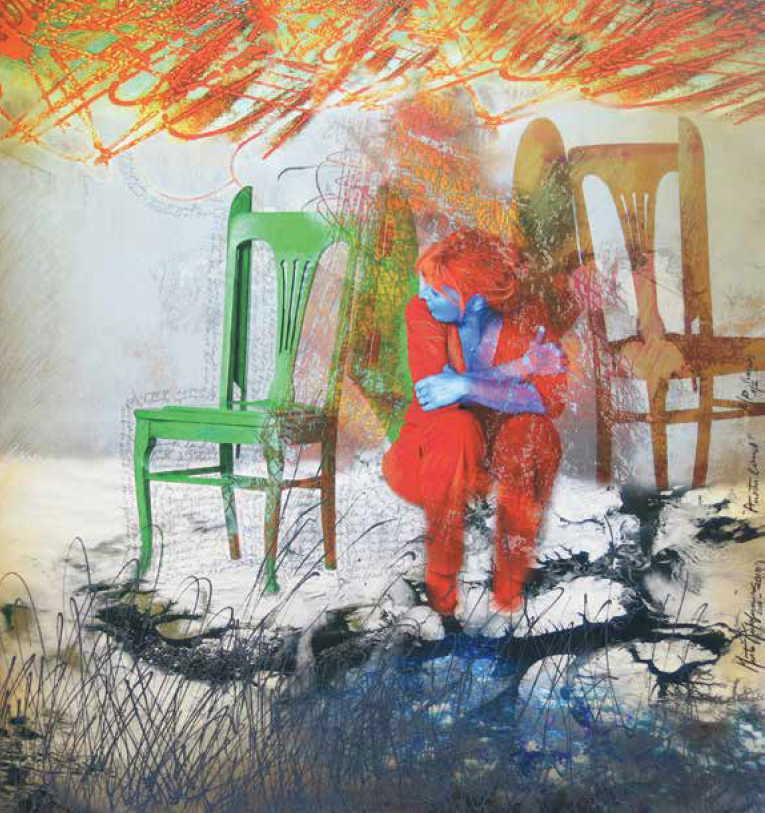 YOU SEE THEM ALL THE TIME, IT SEEMS— stories featuring warmhearted family reconciliations. The adopted child, now an adult, who has a happy reunion with her birth mother. Siblings separated by war who find one another decades later and can bridge the divide of time.
YOU SEE THEM ALL THE TIME, IT SEEMS— stories featuring warmhearted family reconciliations. The adopted child, now an adult, who has a happy reunion with her birth mother. Siblings separated by war who find one another decades later and can bridge the divide of time.
Then there are the family stories that are the counterpoint to these. They don’t make it into the press, and there are no warmhearted get-togethers photographed for posterity. These are narratives of family fragmentations, splits that are especially challenging to repair. Those who experience them say that they can come with more emotional anguish than the death of a family member, as if a choice had been made to sever a family tie.
Painful cut-offs within a family mean that some are grieving the loss of living family members. Siblings may go in different directions and be unable to find their way to a relationship with one another around obstacles of hurt or perceived injustice. Or an adult child feels so wounded by her parents’ behavior that breaking away seems like her best survival tactic. Or it’s a parent who severs the tie with an adult child. Judy [names have been changed here*], whose daughter turned away from her parents and siblings after marrying a man who, in Judy’s view, is emotionally abusive, still mourns this loss a decade later. “My daughter and I were very close, we spoke three or four times a day. And then we didn’t speak at all,” she says. “For a while I couldn’t even bring myself to see my other grandkids because it reminded me that I couldn’t see her children.”
Family gatherings can be a painful reminder of who’s missing from the High Holiday meal, Shabbat gathering, birthday celebration or Passover table. In Jewish families that tout family closeness as “the greatest value,” contending with these frequent occasions can be daunting.
As a mental health practitioner, I know my colleagues and I always roll up our sleeves for a holiday season, which commonly triggers depression, anxiety, and mental anguish in our clients, as they compare the childhood memories of holidays with the current realities. Many Jews not only are acculturated to the primacy of family ties, but also have more holiday traditions and religious marker events to contend with, Shabbat included, which can create a dizzying round of logistical planning. For those from fragmented Jewish families, this process can create a parallel cycle of conflict, grief, and guilt, as we confront who is absent, and why.
And when people have empty spaces in their family tree because of relatives lost to the Holocaust, for example, volitional absences may be especially piercing. A family member who has cut herself off—or been cut off—also is likely to feel, at best, outside the norm, and at worst experience secrecy or shame around failing on a salient measure of successful family life—keeping connected.
The family that has been shunned or abandoned by an absent relative also feels shame, says Simkha Weintraub, rabbinic director at the Jewish Board of Family and Children Services in New York. A rabbi and social worker involved in the Jewish healing movement, he counsels families and says that “Shame is a major factor in family estrangement—an estranged adult child means to people ‘I’ve been a failure as a parent; it must be me’.”
Yet maybe more families experience these fractures than we usually realize. If there were an honest discussion—say, in a synagogue, a pta meeting at a Jewish school, in a Jewish organization or a Lilith salon—you might hear a surprising number of participants admit to estrangements.
A ranking injunction in the Ten Commandments is to honor one’s father and mother. Could the fact that respecting one’s parents is a commandment mean it is not always the norm, and therefore we need to be commanded to do it? Certainly the Bible has no shortage of families rent apart by feuds, and sometimes by unforgivable behavior: Cain and Abel. Joseph and his brothers. Or older children whose birthrights were, by deceit, given to a younger sibling—Esau and Jacob, Menashe and Ephraim.
Estrangement in Jewish families is multifaceted. While some individuals describe the anguish of being ousted from a child’s life with little apparent explanation, another narrative is of the powerful—and potentially healing—decision of a formerly abused adult child to shed the traumatic connection to an abusive parent or family member. There is even recognition of these circumstances in some new prayerbooks, where the Yizkor liturgy offers special lines to recite when one cannot honor a deceased parent with the traditional tender words of a mourner.
I would argue, from my perspective as a clinical psychologist, that for those experiencing family fractures such as estrangement, they’re feeling what is known as “complicated grief.” In the uncomplicated grieving process, we understand the “normal” sadness we feel after losing someone or something meaningful in our lives (through death, divorce or a move, for example).
What makes complicated grief different is that it generally does not diminish with time. Often it is difficult to move on. Complicated grief turns the normal grieving and healing process on its head. “Most of the people I have spoken to suggest that being estranged by a family member is one of the most painful events across the lifespan,” writes psychologist Dr. Kylie Agllias in an article “‘You’re Dead To Me’: Why Estrangement Hurts So Much.” Agllias explains that an estrangement causes pain that is “intensified by: (i.) its unexpectedness, (ii.) its ambiguous nature, (iii.) the powerlessness it creates, and (iv.) social disapproval.”
For family members who have been rejected, the ambiguity and lack of transparency about the estrangement can cause both mental anguish and confusion about the relationship, leaving the person who is rejected “wondering,” as Dr. Agllias puts it, “and ruminating about the truth, with no means of discovering it.”
In a Jewish family where verbal communication has been the norm, unexplained silence from a close relative can feel especially puzzling, despite the fact that family estrangement among Jews is indeed not rare.
HOW DID THIS HAPPEN?
Estrangements and family splits can happen after years of buildup or suddenly after a change in circumstance like a death, divorce or marriage. Sometimes they are precipitated by serious money or religion arguments. Sometimes they feel fated, held at bay for decades until a final rupture can’t be stopped.
“My relationship with my brother was strained, and then there was this blowout Passover seder 12 years ago,” says Elizabeth, who is in her late 60s. “My gay son was there, and my brother said something homophobic. That was it for me.” As many women might, Elizabeth partly blamed herself for acceding to her own mother’s desire to have the whole family together for seder—she’d agreed to come, even while knowing there was the potential for a major fight.
For Nylah Burton (see sidebar) a combination of factors— including her growing identification with the Judaism of her paternal family rather than with her mother’s Christianity, plus fallout from surviving a sexual assault as a young woman—led to a split with her mother, and through that, with her father and siblings too. Yet she sees the split as having come from something deeper than the nominal reasons it happened: ‘For Black people, Christianity can be used as a tool of control,” she says. “My mom was consumed by a desire to be accepted, and to use Christianity and misogyny to shame people.” Breaking free from her mother’s preferred paths proved impossible to overcome, for a time.
Along with religion and worldview, money can be a major factor in breakups, from arguments over inheritances and heirlooms to conflicts within family businesses: Judy, who warily brought her son-in-law into the family business, says a painful split with her daughter began when the uneasy business partnership dissolved acrimoniously, leading to drawn-out legal wrangling. Until the business split, Judy says, tension had simmered for a long time. And once it happened, the young couple mostly cut off contact, an act she says devastated her.
That is the parent’s perspective. On the other side of such conflicts, individuals who have themselves been the initiators of an estrangement talk about the choice they made to free themselves from abusive or harmful patterns that they’re sure would have persisted had they not stepped away.
Jessica Berger Gross, author of the memoir Estranged: Leaving Family and Finding Home, describes growing up in a family that was a nice, respectably Jewish clan from the outside but abusive on the inside, so much so that she eventually chose to cut off contact. “If you had an abusive spouse, would people expect you to stay? No, they would gather around you and tell you to leave this person,” she says. “You can’t stay in a destructive relationship.”
Another memoirist, Harriet Brown, author of Shadow Daughter: A Memoir of Estrangement, says “In our culture we tend to see estrangement as a problem that needs to be solved, but I see it as not a cause but a response to the problem. Sometimes it’s really the best option.”
PARTICULARLY FOR JEWISH WOMEN?
Sometimes estrangement is about the trauma of the relationship in the here and now. And sometimes it’s more extensive when there have already been instances of a family member’s estrangement which modeled this exit door for future generations. Intergenerational trauma, a term that has only recently become better-known, refers to trauma passed down from previous generations to their children and grandchildren, who then carry its invisible weight—such as the feelings and behaviors in secondand third-generation Holocaust survivors spurred by events they did not experience first-hand. Intergenerational trauma can appear both psychologically (as in the case of my own fear of travel) as well as physically, with second-generation Holocaust survivors displaying higher than normal rates of chronic illness, cardiovascular disease, high blood pressure, and other genetic abnormalities, such as lower levels of cortisol, a hormone that helps your body manage stress.
Particularly for women, there’s an added layer. What does it mean to be held to the notion (or the ideal) that females are the connectors, the glue, the stewards of the home, while facing the reality that one or more members of the family have un-stuck themselves from relationships that were supposed to last a lifetime?
“The way that Jewishness factors into all of this for me is with the Jewish holidays,” says Melanie, a professional in California whose mother and grandmother are estranged from each other.
“I think because Jewish holidays aren’t dominant and Christian hegemony is, we have to carve out our own family time and defend it. It’s hard when Passover comes and I have to make it to two seders—my mom’s and my grandmother’s. I also notice the disconnection in my Jewish celebration because so much of the message is about being with family.”
The way that American Jewishness emphasizes holidays and boisterous gatherings—in part as an antidote to collective historical trauma—can be a sticking point for those who suffer from silences. “Holidays are very painful for me,” says Elizabeth, who cut off her brother after he insulted her gay son. “We do them with friends, and that takes the place of family, and you adapt the best you can. But there’s definitely a hole, even though my children hated having holidays with my brother and cousins.”
As a woman, the pressure is doubled, she says. “We’re not doing these holidays with my brother, but [in the immediate family] the holidays that are happening are through me—the Jewishness is through me. Who makes sure the son in Chicago gets the menorah for Hannukah? It’s the Jewish mother.”
Rachel, a professional in her 30s, said she feels the double pressure of being a woman and being Jewish. In her case, several of her siblings are estranged from each other, and she is the only one who speaks to everyone. She talks about the value of loyalty as being imbued in her in a particularly Jewish and female way from an early age. “My grandmother was a mean woman. Even at the end she was mean,” she says. “Yet we would have holiday dinner as a family at home and then go to the hospital to visit her, even though she wasn’t nice. I took that lesson, that you hold the relationship even when that person is difficult.”
But her brothers, several of whom don’t speak to each other, didn’t seem to take their mother’s advice as much to heart. “When I was a child, my mother told me, ‘If you want a relationship with your brothers when you’re older, you’re going to have to get along with their wives’, and I’ve tried really hard,” she says. This kind of exhortation, she recalls, goes hand in hand with her brothers’ not having had to clean up after dinner when she did. The physical and the emotional labor were both on her.
The ways feminists talk about gendered expectations sneaking in—be nice, smooth things over, don’t speak up—compound the Jewish communal pressure to be the person who carries the family forward. This pressure, both physical (bearing children is but one example) and social (hosting holidays, making the congratulatory or consoling phone calls), can be very fraught for women in fractured families. “Women are socialized to put our own feelings last,” says Harriet Brown. “You’re expected to get along.”
For Jessica Berger Gross, who stopped speaking to her parents a few years ago, these gendered expectation both made her experience worse and haunted her once she had separated herself. “My mother always said ‘A son is a son until he takes a wife, a daughter is a daughter for life’, and I didn’t do that,” she says.
THE LONG SHELF LIFE OF FRACTURES
The consequences of such fractures can be both small and vast, from nagging guilt to extra caretaking work to the effective loss of entire groups of relatives. And it doesn’t matter if the split has been chosen by or is imposed upon on a woman.
Melanie says she felt the collateral damage of her other family members’ estrangements. “A number of years ago, my grandmother wasn’t feeling well and couldn’t get out of bed, and I realized we needed to call 911. I went to my grandmother’s home and did that by myself,” she says. “I discussed this with my mom at one point. My mom was just focused on the rift itself, and I had to tell her, ‘The rift between you and grandma drives a rift between me and you’. It wasn’t obvious to her at all; she was upset and had no idea.”
Harriet Brown acknowledges this in terms of her own choice to cut off contact. It had consequences for her, and for her relatives. “When you’re estranged from one person, it involves an entire family system,” she says. “Because I had difficulty with my mother, I wasn’t allowed to have a relationship with my father. I was not part of the family and I was not invited to things.
“Families often stay together for biological and social reasons, and when you push against those primal elements and make a rupture of some kind, it’s such a complex and layered taboo, everything from Mother’s Day on social media to family holidays to deaths in the family brings it all back,” she says. “My decision made my father’s and sister’s lives harder. It also made the lives of the rest of the extended family harder—aunts, uncles, grandparents—because they had to navigate our estrangement and also deal with the fallout from my mother.”
Nylah Burton faced particularly traumatic fallout when her mother cut her off from her beloved younger siblings. “She knew her power over me was not to let me see my siblings,” she says. Similarly painful consequences awaited Judy, whose daughter and son-in-law cut her off after their business relationship broke up: “What it did to our family was unbelievable—there has been almost no communication between our daughter and her siblings.” Her husband, Judy says, fell into a depression and she cried herself to sleep every night.
OWNING THE CHOICE TO CUT OFF
Many of the women spoke of a sense of shame when it came to talking publicly about such splits, which can be exacerbated by communities that don’t know how to talk about situations seen as outside the norm, says Rabbi Simkha Weintraub. “The community can’t always adjust the way the family needs, and the family then feels unsupported.”
Despite the consequences, many of the people I interviewed said the freedom they felt after an estrangement was a reward that made the pain worth it. “I went from having it be a secret shame to being public about it, and it’s been super empowering,” says Berger Gross. “People I grew up with have come out and really supported me.”
Telling her mother how she was stretched thin by the mom’s estrangement from her grandma helped Melissa, too. “After that conversation, my mom came for the drive to see my grandmother in the hospital after a fall, and she sat in the waiting room. At first I wondered if she was going to want to see my grandma, but it meant so much that she waited in the waiting room for me. It helped me really feel the estrangement wasn’t about me.”
Nylah Burton found unexpected balm when she left home to live with her grandparents. “Judaism was a way that my grandparents and I got a lot closer. We had a lot of fun making our own traditions. We started doing Shabbat dinners, I was able to explain why Shabbat was super important to me,”
“At the end of the day, I feel that I am a better person because of the estrangement. I’ve formed this connection with my grandmother. I’ve also been able to be a part of the Jewish community, which my mother wouldn’t let me do. I’m able to say what I think and believe, and that’s a big part of my personality.”
THERAPY & “CHOSEN” FAMILY
Sometimes, estrangements end and lead to halting contact, as with Nylah Burton and for Judy, whose daughter and son-in-law have allowed her to visit several times recently. But sometimes the silence settles in for good.
For almost all of the women we spoke to, therapy and a “chosen family” were the two chief components of moving forward in the wake of estrangement.
In this sense, Jewish culture can be both a pain point and an anodyne. Rav Rachel Isaacs, a lesbian and rabbi of Beth Israel Congregation in Portland, Maine, says that queer people understand this latter point. “I am very aware of family estrangement, and I bring it onto the bima and into our conversations with the congregation,” she says. “When you’re a queer person, you’re more conscious of those family rejections. We know plenty of queer folks estranged from their families; Queers have always had to have a family of choice, and that sensitizes me more about not assuming the ways in which families work.”
Isaacs tries to offer spiritual and scriptural healing, too. “There’s a psalm for the Days of Awe that you say throughout the month of Elul. It says ‘Though my father and mother may abandon me, God will gather me up’. I think the original idea was, if a parent dies, that you can go on. But for family estrangement, that can be very comforting that there’s someone beyond your original parents, that in the face of estrangement, God can be your parent.”
In fact, the synagogue itself, and the community it offers, can be another substitute. “We have a small synagogue, and it feels much more like a family than an institution; it’s 60 families, and there’s a very familial sense that the other kids in the congregation are siblings to your kids and the older adults are your Bubbes and Zaydes. At its best, a synagogue can serve as a family even if your family of origin can’t be there for you in the way you want or need,” says Isaacs. “Even if people aren’t estranged [from their families of origin], Jews are much more spread out, so synagogue has to take the place of family. Around the High Holy Days, there is a real emphasis on reconciliation, but I always say, that doesn’t include abusive relationships; I don’t expect people to reconcile with their abusive family members. One lesson that can be learned is gratitude for alternative chosen family, for Jewish community, that it can serve the place of family.”
Elizabeth, since her parents have died and she doesn’t speak to her brother, describes Jewish rituals with friends that help “fill the void.” “I have women friends on the Upper West Side and a bunch of us do Hanukkah together, for example. That has created a community for me,” she says. But her advice goes deeper: “My advice is also to find a good therapist and bang it out. Don’t pack it in and suffer and bleed. I always tell people, ‘Go have therapy, nobody can treat themselves, it’s just not possible, you can’t administer your own medicine’.”
Healing takes time and strength and lots of work and faith in the future. “I’m strong enough to know I don’t have to settle, and I also don’t have to be angry forever,” says Nylah Burton.
Weintraub says we’re living in a moment of alienation between generations. “It’s a time of rugged individualism. Some people don’t know how to balance dependent and independent lives with children and adults,” he says. “Many parents step back from offering advice and others overdo it. It’s a tricky thing for families. Young adults might know that their parents want them to get a Bachelor’s degree—or preferably a Master’s degree—but when it comes to interpersonal or even ethical choices, the parents may have not shared their convictions, and if there wasn’t some implied system, then you don’t know what you’re arguing with or what you’ve been given as your family’s Torah. It really leaves people not just empty, but at a loss.
To connect with families suffering, Weintraub uses his own struggles with a son who had a “rocky journey” with Asperger’s and now lives happily in Ireland. “I think he needed this distance,” Weintraub says. “At a family wedding, where the cousins and children are doing the perfect schools, jobs, and incomes, people ask about my son and I say ‘My standards have shifted from the script we had in front of us’.” Weintraub advises, “Find your peers. We were a part of the ‘Miserable Families Club’. Hopefully you can find them in the Jewish community, but even if you can’t find them, share your stories with the community. Start getting the stories out there, so you don’t add to the burden of isolation.”
Ilana Kramer is a clinical psychologist and writer living in Berkeley, California.
*Those referred to by first name only are individuals who have requested anonymity.
ART CREDIT: MIRTA KUPFERMINC, “IN ANOTHER LAND” 2008, WWW.MIRTAKUPFERMINC.NET.

